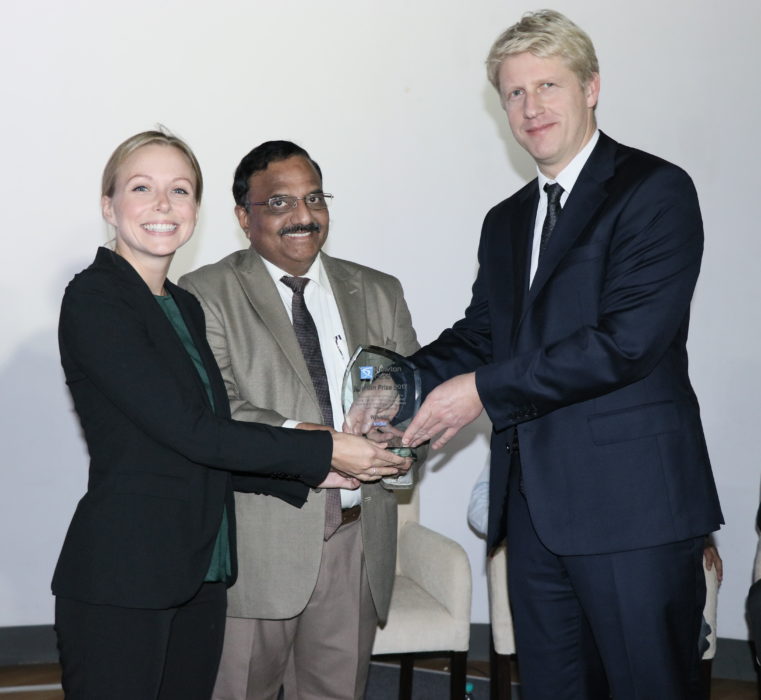The blog is co-authored by Professor Andrew Shennan and Dr Nicola Vousden from St Thomas Hospital, King’s College London.
One of the Newton Bhabha funded and Newton Prize winning project in India is ‘Evaluation of the introduction on CRADLE Vital Signs Alert (VSA)’ was led by scientists from St Thomas Hospital, King’s College London in partnership with scientists from Jawaharlal Nehru Medical College in Belgaum, Karnataka. The UK and Indian funding partners for this project are Medical Research Council and Department for Biotechnology.
Across the world 800 women die in pregnancy and childbirth every day. The most common reasons are infection, bleeding and pre-eclampsia, which cause over 60% of all deaths. These can all be detected earlier by measuring the blood pressure and pulse. We have developed an accurate device to do this called the CRADLE VSA, that has been specifically developed to be suitable for use anywhere, by anyone. Professor Shennan, the inventor, has one at home to check his own blood pressure. It’s cheap, robust and portable. Results are displayed on a traffic light, the red light acts as a universal alert for danger, even for those without formal clinical training. This means that anyone can understand the risk including the mother and her family. In this project, we are introducing the CRADLE VSA into routine pregnancy care in 10 sites in 8 different countries including India, Haiti, Malawi and Sierra Leone to determine whether it makes a difference to the number of women that die in pregnancy.
So far, we have delivered over 3000 devices and trained over 2000 health care providers to use the VSA in the CRADLE trial. In total nearly 10,000 are in use around the world. Health care providers have reported that it is easy to use and makes them more confident to make decisions about treatment. For example, one village health worker in Cap Hatien, Viernan works in a remote village that is only accessible by boat or a hard hour long trek over a steep hill. Two days after training he was using the VSA to measure the blood pressure of a woman at her home in the village. The light flashed red and he used the light to convince the woman and her family that she must travel to the hospital in the next town and that she must go soon as it was an emergency. At the hospital, she was diagnosed with pre-eclampsia and had a caesarean. She came back a week later and thanked Viernan for using his tool to save her life. We have hundreds of stories like Viernan’s and hope that this will mean that pregnancy complications are detected earlier and lives will be saved.
Through this project, we have developed a strong network across all 10 sites which has been invaluable in planning future work together. The team at King’s College London and across all our sites were so excited to be awarded the Newton Prize which will allow this network to grow in strength. Nicola Vousden, the trial coordinator and Dr. Bellad, the Co-Primary Investigator in India travelled to Delhi to accept the award from several imminent ministers. We hope to use the Newton Prize to explore a number of pilot projects including the use of the CRADLE VSA by women and their families at home and evaluating the prevalence of anaemia in women who trigger a yellow light. This will help improve our guidance for future scale-up internationally.

